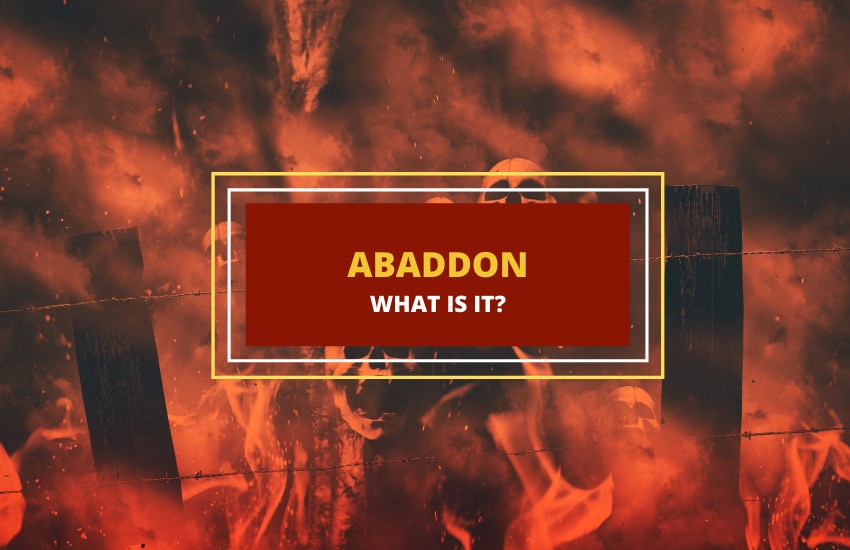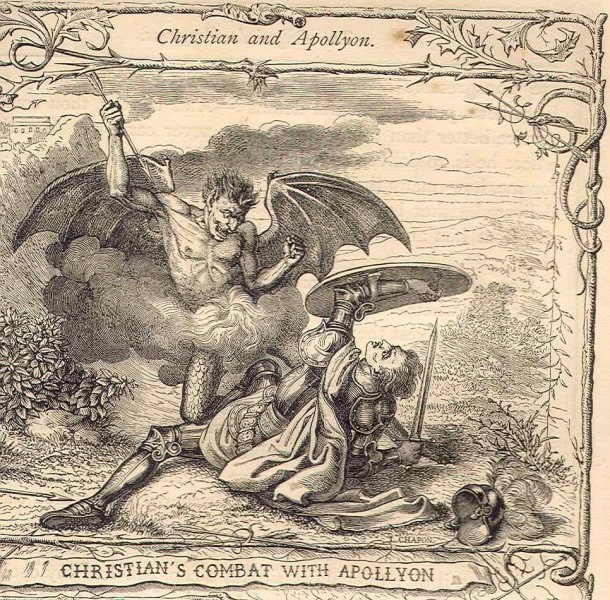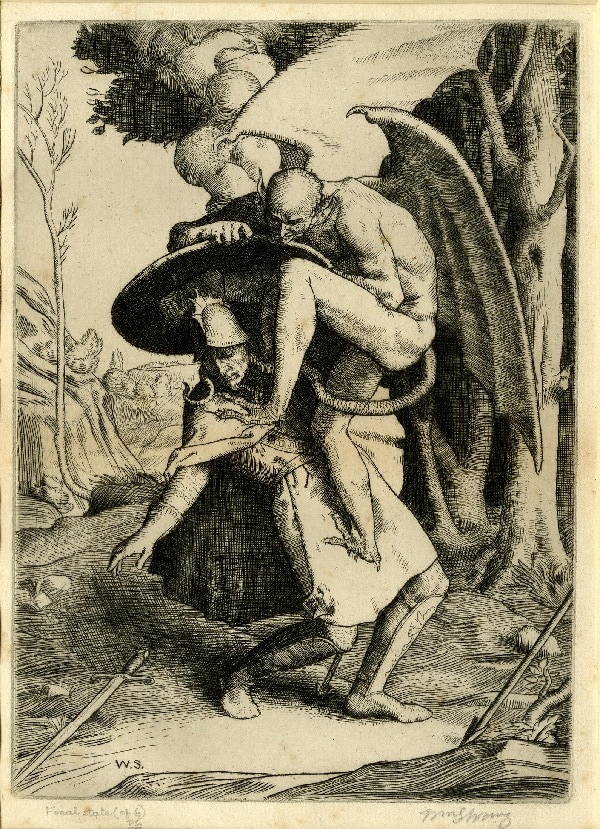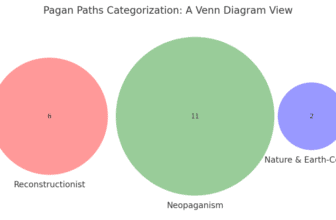
Table of Contents
The word Abaddon is a Hebrew term meaning destruction, but in the Hebrew Bible it is a place. The Greek version of this word is Apollyon. In the New Testament it is described as a powerful person or being whose identity is unclear.
Abaddon in the Hebrew Bible
There are six references to Abaddon in the Hebrew Bible. Three of them occur in the Book of Job, two in Proverbs and one in the Psalms. When Abaddon is mentioned, it is coupled with somewhere or something else tragic.
For example, Sheol is mentioned alongside Abaddon as in Proverbs 27:20, “Sheol and Abaddon are never satisfied, and never satisfied are the eyes of men”. Sheol is the Hebrew abode of the dead. For the Hebrews, Sheol was an uncertain, shadowy place, a place absent of God’s presence and love (Psalm 88:11).
Similarly mentioned with Abaddon are “death” in Job 28:22 and “the grave” in Psalm 88:11. When taken together these speak to the idea of the fear of death and destruction.
The story of Job is particularly poignant because it centers around the destruction he is experiencing at the hands of Satan. In Job 31, he is in the middle of defending himself and his personal righteousness. Three acquaintances have come to justify the tragedy that has befallen him by investigating potential unrighteousness and sin he has committed.
He declares his innocence of adultery by saying it would be an iniquity to be punished by the judges “for that would be a fire that consumes as far as Abaddon, and it would burn to the root all my increase”.
In chapter 28, Job anthropomorphizes Abaddon along with death. “Abaddon and Death say, we have heard a rumor of [wisdom] with our ears’.
Abaddon in the New Testament
In the New Testament, reference to Abaddon is made in The Revelation of John, an apocalyptic writing full of death, destruction, and mysterious figures.
Revelation chapter 9 describes the events that occur when an angel blows the fifth of seven trumpets as the end of time unfolds. At the sounding of the trumpet, a star falls, which is how the devil or Lucifer is described in Isaiah chapter 14. This fallen star is given a key to the bottomless pit, and when he opens it, smoke rises out along with a swarm of unusual locusts with human faces and plated armor. The fallen star, identified as “the angel of the bottomless pit,” is their king. His name is given in both Hebrew (Abaddon) and Greek (Apollyon).
Thus, the Apostle John changes how Abaddon had been used thus far. It is no longer a place of destruction, but an angel of destruction and king of a swarm of destructive flying pests. Whether John intends for the reader to take this understanding literally, or whether he is drawing upon the concept of Abaddon to portray destruction, is uncertain.
Christian teaching for the next two millennium took him literally for the most part. The most common understanding is that Abaddon is a fallen angel who rebelled against God alongside Lucifer. He is an evil demon of destruction.


An alternative understanding views Abaddon as an angel doing the Lord’s work. He holds the keys to the bottomless pit, but that is a place reserved for Satan and his demons. In chapter 20 of Revelation the angel with the keys to the bottomless pit comes down from heaven, seizes Satan, binds him, throws him in the pit, and locks it shut.
Abaddon in Other Textual Sources
Other sources where Abaddon is mentioned include the third century apocryphal work Acts of Thomas where he appears as a demon.
Rabbinic literature from the second temple era and a hymn found in the Dead Sea Scrolls mention Abaddon as a place like Sheol and Gehenna. While Sheol is known in the Hebrew Bible as the dwelling place of the dead, Gehenna is a geographic location with a horrific past.
Gehenna is the Aramaic name for the Valley of Hinnom located just outside of Jerusalem. In the book of Jeremiah (7:31, 19:4,5) this valley is used by the kings of Judah for the worship of other ba’als which included child sacrifice. The synoptic gospels of Matthew, Mark, and Luke have Jesus using the term as a place of fire and destruction where the unrighteous go after death.
Abaddon in Popular Culture
Abaddon does appear quite often in literature and pop culture. In John Milton’s Paradise Regained the bottomless pit is called Abaddon.
Apollyon is a demon who rules the city of destruction in John Bunyan’s work Pilgrim’s Progress. He attacks Christian during his journey through the Valley of Humiliation.
In more recent literature, Abaddon plays a role in the popular Christian book series Left Behind, and in Dan Brown’s novel The Lost Symbol.
Harry Potter fans may also be aware that the infamous prison Azkaban derives its name from a combination of Alcatraz and Abaddon according to J.K. Rowling.
Abaddon is also a fixture in heavy metal music. There are numerous examples of bands, albums and songs which use the name Abaddon either in titles or lyrics.
There is also a long list of television series which have made use of Abaddon including Mr. Belvedere, Star Trek: Voyager, Entourage and Supernatural. Often these appearances take place in special Halloween episodes. Abaddon also appears regularly in video games such as World of Warcraft, the Final Fantasy franchise and Destiny: Rise of Iron both as a person and as a place.
Abaddon in Demonology
Modern demonology and the occult build upon the textual sources of the Bible to construct the myth of Abaddon or Apollyon. He is an angel of judgment and destruction, but his allegiance can shift.
Sometimes he may do the bidding of heaven and at other times the work of hell. Both claim him as an ally at various times. He does command the horde of locusts that will be unleashed at the end of days, but just whose side he will ultimately be on remains a mystery.
In Brief
Abaddon certainly falls into the category of the mysterious. Sometimes the name is used of a place, perhaps a physical location, of destruction and horror. Sometimes Abaddon becomes a supernatural being, an angel who is either fallen or from heaven. Regardless of whether Abaddon is a person or a place, Abaddon is synonymous with judgment and destruction.








